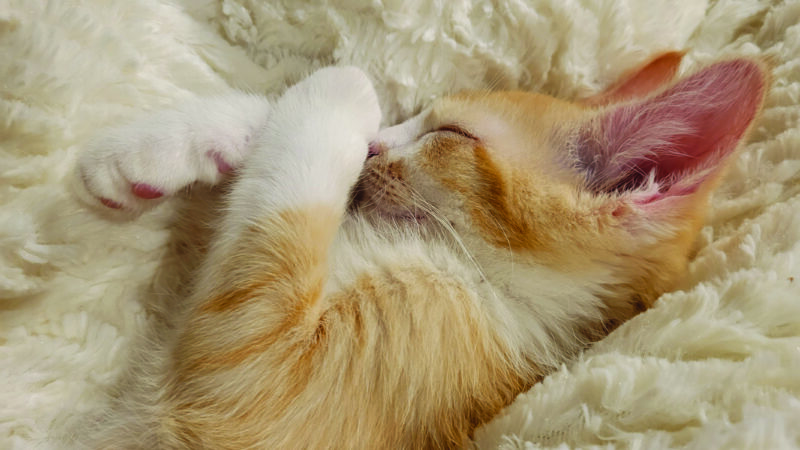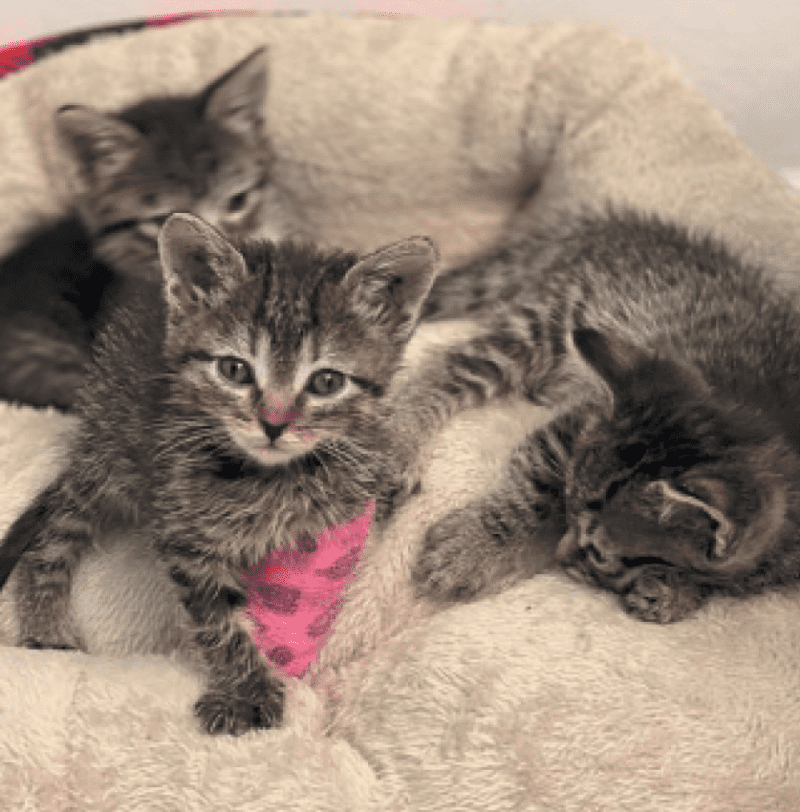When most of us hear the phrase “separation anxiety,” we think of dogs. But can cats also experience separation anxiety? Is the opposite possible – can cats get stressed by having us around all the time? Here’s what you need to know about cats and separation anxiety.
Do cats get separation anxiety?
“Cats experience and feel separation anxiety just like dogs. They may not react or express it in the same way, but the feeling/intensity may be the same,” says Dr. Dora Ramos, DVM of the Quick Care and Emergency team at NorthStar VETS Veterinary Emergency, Trauma, and Specialty Center.
Separation anxiety is particularly likely to occur with very social cats, heavily bonded with their people, and cats who are particularly social with their families.
“Bottle-fed kittens, orphaned or weaned too early, might be predisposed to separation anxiety due to the strong bond. Handling kittens between 2-7 weeks of age makes them more prepared for life changes later, more resistant to stress,” says Dr. Barbara Boechat, DVM at Firehouse Animal Health Center.
What about too much togetherness?
Any change in household routine can be challenging for cats. With pandemic lockdowns and many of us working from home, cats have lost a lot of the alone time they might previously have been accustomed to. Like how some very social cats might, as the country reopens, start to experience separation anxiety, other cats have been struggling with the constant togetherness and need more space.
“If you were used to going to work every day and now you are working from home, that can also be a new stressor for your furry friend,” says Dr. Boechat. Sometimes cats need some space from us, and cats feeling stressed out by too much togetherness will behave the same way as a feline with separation anxiety. According to Dr. Boechat, some signs of too much togetherness to watch for include: house soiling, anorexia, and vomiting, and hiding.
Give your cat space
It’s important to remember that cats spend a lot of time sleeping.
“Cats spend an average of 12-15 hours per day sleeping, mostly during the daytime as they are nocturnal by nature,” says Dr. Ramos, who advises that older cats will likely spend more time sleeping than younger cats and kittens.
“When awake, the amount of time cats spend socializing is individual to that cat’s personality and socialization status,” says Dr. Ramos.
Try to avoid disrupting your cat while they are sleeping. Similarly, it’s essential to give your cat as much autonomy as possible to choose when and how much time you spend together, even if you are home all day.
“If your cat is struggling with too much togetherness, give them space, be aware of their feelings, and monitor for behavioral changes,” encourages Dr. Ramos.

Cat separation anxiety symptoms to watch for
Symptoms of separation anxiety in cats will mirror the kind of symptoms you would see around cats who are experiencing stress or anxiety. This includes vomiting, anorexia, excessive grooming to the point of losing hair, and vocalization (especially when the owner is away from home).
“The most common complaint owners bring to the clinic is house soiling. Felines that are used to using the litter box might start changing their habits and urinating or defecating in the owner’s bed, for example,” says Dr. Boechat.
Cats experiencing separation anxiety may exhibit a change in behavior around eating, drinking, urinating, and defecating. Dr. Ramos notes that cats who are stressed by having people home all day every day might exhibit the same symptoms.
How to help your cat deal with household transitions
Any significant change in routine can be stressful for your cat. Last year’s lockdowns were a big change in routine for most cats, and now as we’re looking towards returning to something closer to normal, our cats are experiencing big changes again. Dr. Ramos advises helping your cat make positive associations with you leaving by pairing your cat alone with something rewarding. “If you are returning to work, make the transition as smooth as possible for your feline friend by offering a favorite toy or treat only when you’re leaving the house (so it changes your departure from a negative to a positive experience).” For cats closely attached to people, Dr. Ramos advises that it can be helpful to have a pet sitter or a family member come and visit your cat during the day while you are at work. Also, Dr. Ramos encourages that “it’s a good idea to leave the home in its most common state for stability for the pet – leaving the tv or radio on if that’s commonly done while humans are home.”
On the other hand, “If you are home more than usual, it is a good idea to try to maintain the same routine your animal is used to, the same way if you are going back to work. For example, you can feed and play with your cat at the same time as if you must leave your house. Also, keep a separate room where your animal can go and be by himself,” encourages Dr. Boechat. Cats thrive on consistency, and so regardless of what kind of schedule changes are happening for you, it can help your cat keep their life as consistent as possible. For example, maintaining a consistent feeding time can be comforting for cats. Dr. Boechat encourages cat guardians to consider using an automatic feeder so regardless of if you are home, your cat will eat at the same time every day.
When to seek veterinary help for cat separation anxiety
If your cat’s behavior has suddenly changed, it’s essential to schedule a checkup with your cat’s veterinarian. Your vet will be able to rule out any underlying health conditions that could manifest with the same symptoms as stress. If the vet determines your cat is physically healthy, they will help you develop a plan that might increase enrichment, like adding cat trees to the home or plug-in pheromones. Your vet may also recommend supplements, or in severe cases, an anti-anxiety medication. Dr. Ramos advises that your veterinarian will also be able to provide a referral to a veterinary behaviorist for your cat if they continue to emotionally struggle with being alone or with changes to a routine.








